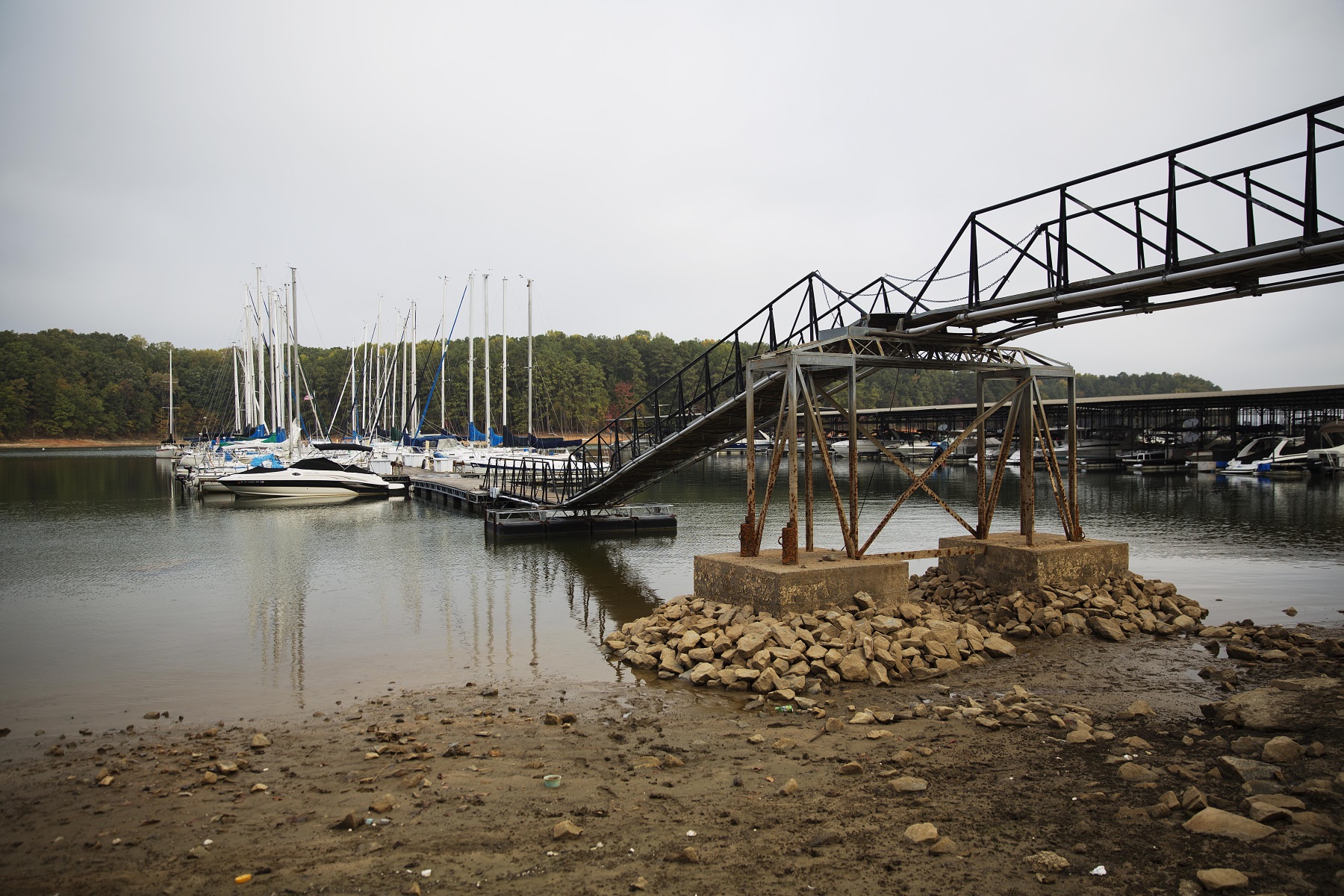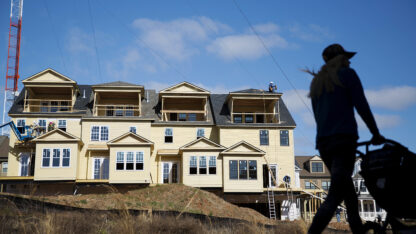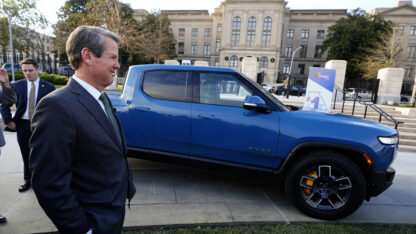At Georgia Conference, Grappling With How To Talk About Climate Change

In October 2016, a shoreline, affected by drought, is exposed by receding water levels on Lake Lanier in Buford. Georgia faces threats from climate change: from sea level rise, stronger storms, increasing heat and drought.
David Goldman / Associated Pres file
The second day of the second statewide Georgia Climate Conference began with a fired-up scene.
The Atlanta event, put on by a consortium of Georgia schools tackling climate change, known as the Georgia Climate Project, was focused on looming threats and emerging opportunities for Georgia. But speakers Friday morning highlighted some of the tensions around how Georgians talk about climate change, and who’s in the conversation.
“I love this choir. Because this is my climate change choir,” Mildred McClain, executive director of the Savannah environmental justice organization Harambee House, said to a couple hundred people gathered at Emory.
“But there’s a section missing,” she said to scientists and business leaders, policymakers and activists.
“You are scholars, and you’re that climate change choir. You have done research, you know stuff, you know about resiliency, you know about mitigation strategies. You know about the sea level rise,” she said, hitting a rhythm like a preacher.
But she said, looking around the room, the people missing were the people, for instance, from Hudson Hill, a Savannah neighborhood where she works. She said, there, people might not have air conditioners. Their houses aren’t insulated. They’re near polluting industries, and when the neighborhood floods, they can’t get away.
“We cannot address climate change, Brother Tim [Echols], without addressing the issue of justice,” McClain said to the crowd and Public Service Commissioner Tim Echols.
“I can name universities and colleges who are doing extraordinary, exemplary work,” she said. “But it ain’t getting us nowhere. Because you said speaking truth to power? Power ain’t even listening.”
Some communities aren’t privileged enough to participate in the conversation, she was saying, and then she looked the other way and said, on the other hand, leaders aren’t listening anyway.
“Brother Tim” was the next speaker.
“This is so unfair,” the statewide elected official said after McClain’s speech, to laughter. “To make me go after her?”
Echols and McClain had just met last week at a Savannah town hall about Georgia Power’s proposal to raise rates, which, as a utility regulator, Echols has final say over.
“I know Republicans; we get blasted for any number of things — from not using the ‘c’ word,” – he was referring to climate change – “to being uncaring. Here’s what I want to appeal to you. Do not paint everyone with the same broad brush.”
Echols talked about how the all-Republican Public Service Commission has pushed for more solar power in Georgia, and he told the crowd he’s asking the state to buy electric vehicles.
“And you know when you’re doing something like that, you want some radical left-leaning person doing that?” he asked the crowd. “Or you want your Republican out there doing that.”
Georgia faces threats from climate change: from sea level rise, stronger storms, increasing heat and drought. And the equity and justice issues will be vital in a state with harsh divides between rich and poor and urban and rural.
At the start of the conference, one of the organizers, Daniel Rochberg from Emory University and the Georgia Climate Project, told the crowd that responding to climate change would involve people from all over Georgia.
“The path forward on this issue runs through literally the entire state,” Rochberg said. “All of us need to find a way to have a conversation about climate change.”







